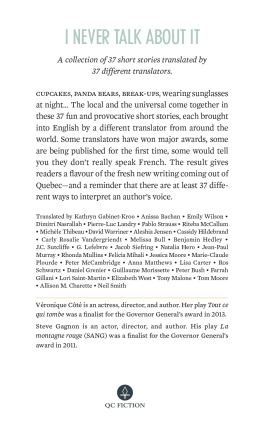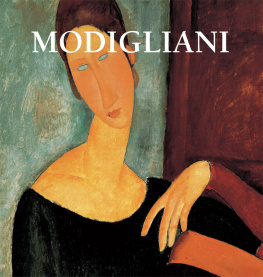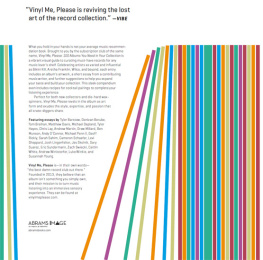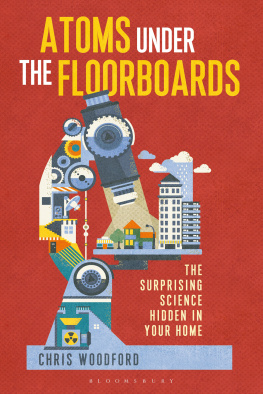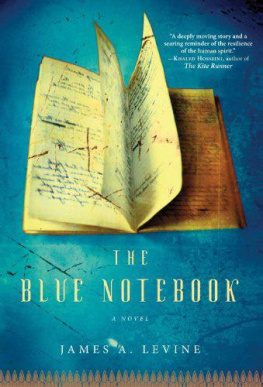Revision: Peter McCambridge
Proofreading: Riteba McCallum, Elizabeth West, David Warriner
Book design and ebooks: Folio infographie
Cover & logo: Maison 1608 by Solisco
Fiction editor: Peter McCambridge
All rights reserved. No part of this book may be reproduced or transmitted in any form or by any means, electronic or mechanical, including photocopying, recording, or by any information storage and retrieval system, without permission in writing from the publisher.
Any other adaptation or use of the publication is strictly prohibited without the prior written consent of the authors or their representatives. For more information, for Steve Gagnon please contact Marie-Pierre Coulombe of Duchesne Agence Artistique, 6031 avenue du Parc, Montral, Qubec, H2V 4H4, mariepierrecoulombe@agenceduchesne.com. And for Vronique Ct please contact Karine Lapierre of Karine Lapierre Agence, 410 rue St-Nicolas, bur 009, Montral, Qubec, H2Y 2P5, karine@klagence.com .
To publish an excerpt of this translation, contact qc@qcfiction.com .
Copyright 2012 by Les ditions du Septentrion
Originally published under the title Chaque automne jai envie de mourir
Translation Copyright Baraka Books (QC Fiction imprint)
ISBN 978-1-77186-109-0 pbk; 978-1-77186-110-6 epub; 978-1-77186-111-3 pdf; 978-1-77186-112-0 mobi/pocket
Legal Deposit, 3rd quarter 2017
Bibliothque et Archives nationales du Qubec
Library and Archives Canada
Published by QC Fiction
6977, rue Lacroix
Montral, Qubec H4E 2V4
Telephone: 514 808-8504
www.QCfiction.com
QC Fiction is an imprint of Baraka Books.
Printed and bound in Qubec
Trade Distribution & Returns
Canada and the United States
Independent Publishers Group
1-800-888-4741 (IPG1);
orders@ipgbook.com
We acknowledge the support from the Socit de dveloppement des entreprises culturelles (SODEC) and the Government of Quebec tax credit for book publishing administered by SODEC.
Introduction
Its like when youre standing in front of a classroom of children. Go ahead, you tell them, there are no wrong answers. The next word out of their mouths is practically guaranteed to be a wrong answer.
So, in translation, we cant say there are no wrong answers, but there are few wrong answers. Jai 12 ans. Theres a difference in wrongness between I am 13 years old, I have 12 years old, and I am 12 years. Theres even a difference between Im 12 and I am 12 years old.
QC Fiction was set up to do things differently and the idea behind this project is to get people thinking about the translators responsible for the words theyre now magically reading in English. Not necessarily to give them recognition or a pat on the back. (Not all are deserving of a pat on the back.) But to acknowledge the process of translation, a reflection in a mirror or a puddle. What are their backgrounds and approaches? Have they twenty years experience or have they never translated before? Are they award-winners or unpublished translation students? Does it matter?
This is, I think, an important conversation to have (and the rarity of such a conversation is partly alluded to in my choice of title: I Never Talk About It). Translations are the product of a set of translators with established routines and practices. With the same tics, favourite words, and go-tos as the rest of us. But none of this is ever discussed. Readers are lucky to find the translators name on the book, let alone learn anything about their approach to it or the questions that kept them up at night.
In the occasional interview after the translations release, the translator will say something like, This is more an adaptation than a translation. Remember: there are few wrong answers. This isnt a sin or a failing, it is what it is. But wouldnt it be wonderful to have that on the book for all the world to see? Freely translated by X, Faithfully translated by X. (Best of all, wouldnt it be wonderful to have different translations of the same book? This happens in Russian literature, for example. But even there we need to do a little digging around a particular translators reputation when deciding which translation to choose. Constance Garnett? Pevear and Volokhonsky? Marian Schwartz? Wouldnt it be truly great to have different translations of Nicolas Dickner or Elena Ferrante to choose from or switch back and forth between?)
Of course, the argument goes, faithfully would win the day. Because readers want to read faithful translations, dont they? Readers who are served a steady diet of faithful translations that cling to the originaltranslations that they seldom read let alone buyare dying to read a faithful translation, arent they? Well... what if they arent? What if theyre interested in a different sort of artistic creation? In a new work thats beautifully written in English and was inspired by words originally put down in French? Or in a version that lies somewhere in between?
What if? we thought. Lets give readers a choice. Lets start a conversation. Lets talk about the types of translators and translations youll come across in this book. Lets show you a few of the possibilities. Lets have each of the 37 stories translated by a different translator. By a translator with his or her own unique approach. By a translator who then reveals a little of what they did and why at the end of each story.
None of which is to say that these are not successful translations; this is more than a translation exercise. They have been edited and polished, not simply printed. But they havent been standardized or made to conform to some ideal. They have, of course, been read alongside the French. Probing questions have been posed. Second drafts have been sent. Liberties have been taken, and every word has been dutifully looked up in a dictionary. The authors have been asked exactly what they meant by such-and-such a word. In short, they are polished translations like any other published translation. They are just a little more upfront about the whole process. Because QC Fiction genuinely believes that if you read Eric Dupont in English there will always be a little of Peter McCambridges or Sheila Fischmans voice in there. That Samuel Archibald would sound different in English if he hadnt been translated by Donald Winkler. That this isnt an unavoidable failing; it just is.
Chaque automne j'ai envie de mourir seemed the perfect hybrid text to examine from a few different angles. Each short story came in fact from the theatre and was originally performed outdoors in Quebec City, with the audience literally wandering in off the street to a garden of secrets, then on to the next story somewhere else across town. (No surprise, then, that so many translators refer to the texts' oral nature or sometimes eccentric punctuation.) The monologues had been co-written by Vronique Ct and Steve Gagnon, with no indication whether a particular text had been written by one, the other, or both. Not counting the interventions from everyone else involved in the theatre festival, and then the editing process when the stories were first put together and published in book form.
It seemed exciting, and fitting, to have these stories translated by a broad range of people. By sleep-deprived young parents juggling newborn babies; by men and women, straight and gay; by people with French as their mother tongue; by people born speaking English who now only speak French and vice versa; by newbies and unpublished students and award-winning translators on speed-dial; by people who only speak enough French to order a croissant; by people who grew up speaking various forms of English in Ireland, England, the United States, and Australia; by retired French teachers; and by people who haven't picked up a book in years.

